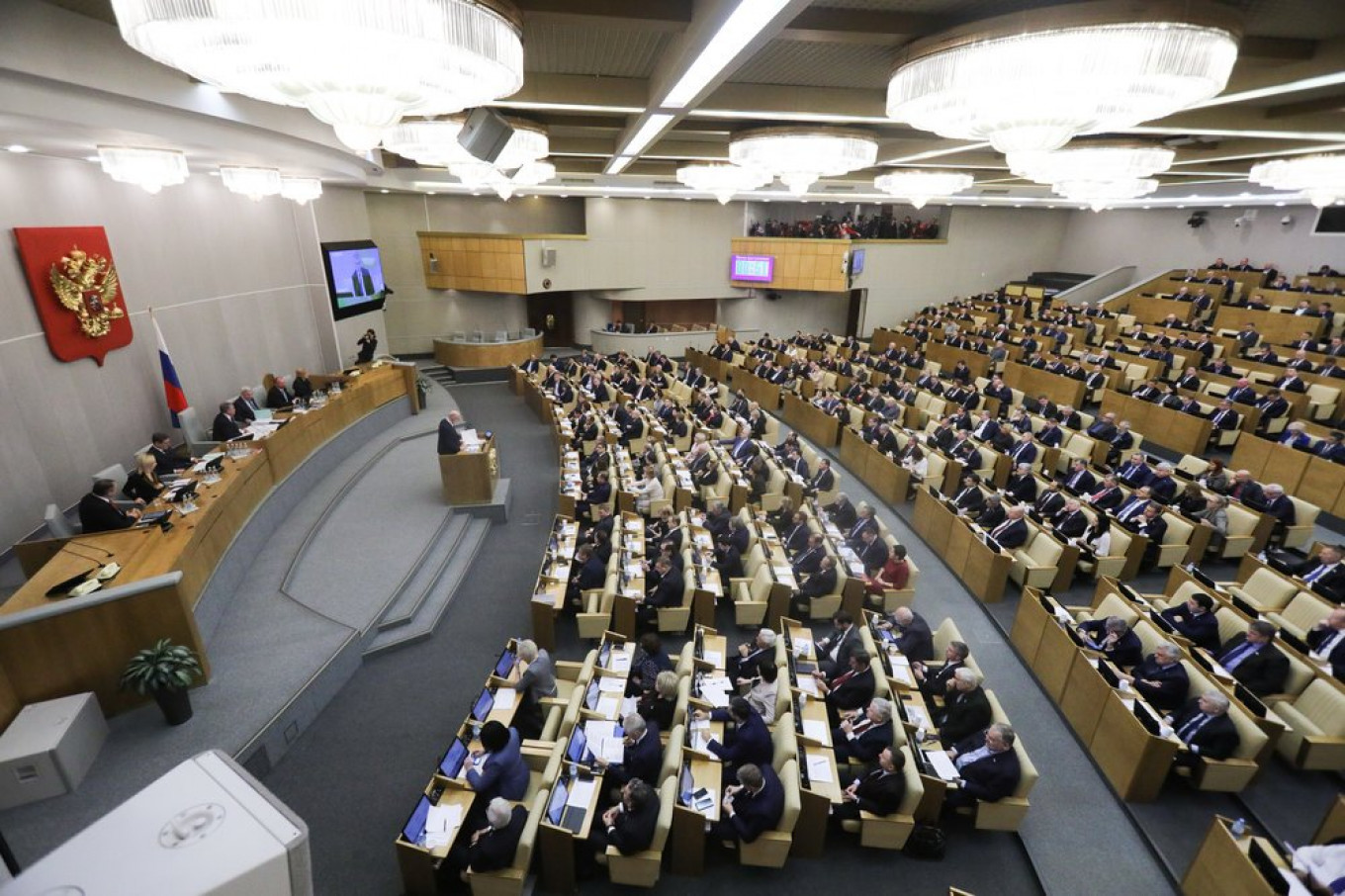
A group of prominent activists and political figures has called on Russians to vote against President Vladimir Putin’s proposed constitutional changes, which they describe as a “coup.”
“We’re convinced that the goal of this coup is to keep Vladimir Putin and his corrupt regime in power for life,” the activists wrote in an open letter they called a “manifesto” in Russia’s Novaya Gazeta newspaper Thursday.
“If such a vote is set, we call on everyone to come and say ‘no’ to a constitutional coup and the usurpation of power,” they said.
Russia’s lower house of parliament, the State Duma, backed Putin’s changes in a unanimous first vote Thursday. The proposals include curbing presidential powers and beefing up those of the prime minister in a move observers say would give Putin scope to extend his grip on power after his term ends in 2024.
Lawmakers are still unclear on whether the public will vote on Putin’s constitutional amendments before or after he signs the bill into law. It is also unclear if the public vote, which media reports say will be on April 12, will have any effect on whether the amendments will be adopted.
Economist Sergei Guriyev and at least 10 municipal deputies from Moscow are among those to have signed the letter. Another signatory, Moscow deputy Yulia Galyamina, led a march against the constitutional reforms during an annual anti-fascist rally that brought out nearly 1,500 people last week.
Their stance differs from prominent Putin critic Alexei Navalny, who blamed the “abominable” 1993 Constitution for allowing the Kremlin to dominate Russia’s political landscape.
Navalny ally Ilya Yashin announced a separate march — tacked on to an annual commemoration of the murder of prominent opposition figure Boris Nemtsov — against Putin’s proposed changes on Feb. 29.
In a nod to Navalny, the manifesto’s authors said they had “serious complaints” about the current constitution. They argued, however, that Putin’s reforms would “destroy the last institution that protects Russia from the complete usurpation of power.”
“We’re aware that the very procedure of voting on amendments to the Constitution is not open, and is dishonest. But silence will be interpreted as consent,” they wrote.
